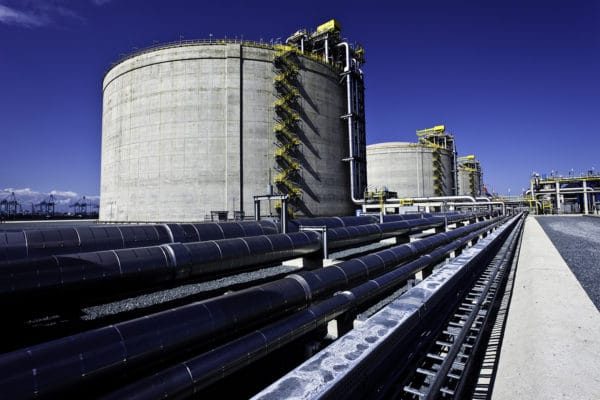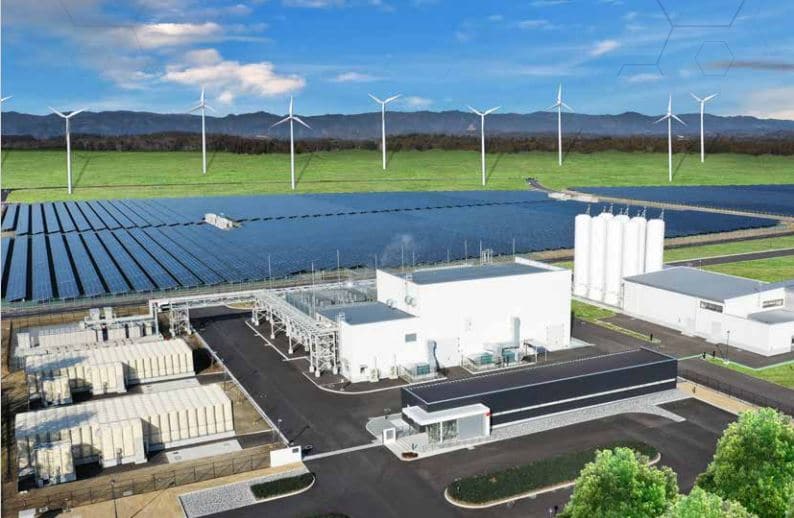On the same day the State Government announced it had signed a Memorandum of Understanding (MoU) to study the feasibility of exporting green hydrogen to Europe’s largest port, the South Australian Opposition unveiled its Hydrogen Jobs Plan, outlining its strategy to establish a “world-leading” hydrogen industry, including one of the world’s largest hydrogen electrolyser facilities by 2025.
South Australian Opposition leader Peter Malinauskas said a Labor government would build 250 MWe of hydrogen electrolysers, a 200 MW hydrogen-fuelled power station and storage capacity capable of holding 3600 tonnes of hydrogen, or the equivalent of two months of hydrogen power generation.
The plan also calls for the creation of government-owned entity Hydrogen Power SA which would own and operate the hydrogen production and power plant.
“As we move into the post-COVID recovery phase, South Australia needs a vision which will set our state up for the future,” Malinauskas said.
“Hydrogen is central to the world’s energy future – it’s cleaner, it’s cheaper and South Australia is uniquely positioned to become a world leader, with our abundant wind and solar resources.”
Malinauskas said building a 200 MW hydrogen-fuelled power station would provide firming capacity in the South Australian Electricity Market.
He said the electrolysers would use excess renewable energy to produce hydrogen, reducing the need to remotely switch off rooftop solar for households and businesses, and would help unlock a $20 billion pipeline of renewable energy projects in the state.
“South Australia has a proud legacy of leading Australia and the world on renewable energy and this is our next leap forward,” he said.
“We have all the ingredients; we just need a vision.”
Labor said the Hydrogen Jobs Plan will deliver cheaper power to industry and businesses, pointing to an independent analysis by Frontier Economics which indicates South Australia’s hydrogen plant will reduce the wholesale cost of electricity to industry by 8%.
Labor said if elected, all elements of the Hydrogen Jobs Plan will be operational by the end of 2025.
Shadow Minister for Energy Tom Koutsantonis said the cheap production of hydrogen would be a “gamechanger”.
“Its uses are diverse, including manufacturing, firming energy to lower electricity prices, manufacturing green steel, being injected directly into furnaces to offset coal use and use in heavy vehicle and passenger vehicles to lower emissions and lower costs,” he said.
“We are going to be at the forefront of this because this is where the jobs are, and this is where the future is.”
Labor’s plan also aims to take advantage of emerging international markets with the Australian Renewable Energy Agency (ARENA) forecasting the hydrogen export industry will be worth $1.7bn to the Australian economy by 2030.

Image: Port of Rotterdam
The current South Australian Government is already exploring hydrogen export opportunities, announcing on Tuesday it had signed an MoU to study the feasibility of exporting green hydrogen to Rotterdam, Europe’s largest port.
The Port of Rotterdam in the Netherlands is at the vanguard in the transition to renewable energy and has developed an ambitious masterplan to become a major hydrogen import hub to supply north-west Europe with renewable energy.
Rotterdam currently imports vast quantities of oil and coal but hydrogen is expected to replace these to a large extent in the years to come, as part of the decarbonization of the European economy.
SA Minister for Energy and Mining Dan van Holst Pellekaan said Europe is set to remain a net importer of energy and its “gradual shift from grey to green” will pave the way for South Australia to establish itself as a world-class renewable hydrogen supplier.
“The South Australian Government intends to become a national and international exporter of clean power, through new power interconnectors and carriers such as hydrogen,” van Holst Pellekaan said.
“These could lead to South Australia producing around 500% of its current grid demand in renewable energy by 2050.
This content is protected by copyright and may not be reused. If you want to cooperate with us and would like to reuse some of our content, please contact: editors@pv-magazine.com.









By submitting this form you agree to pv magazine using your data for the purposes of publishing your comment.
Your personal data will only be disclosed or otherwise transmitted to third parties for the purposes of spam filtering or if this is necessary for technical maintenance of the website. Any other transfer to third parties will not take place unless this is justified on the basis of applicable data protection regulations or if pv magazine is legally obliged to do so.
You may revoke this consent at any time with effect for the future, in which case your personal data will be deleted immediately. Otherwise, your data will be deleted if pv magazine has processed your request or the purpose of data storage is fulfilled.
Further information on data privacy can be found in our Data Protection Policy.